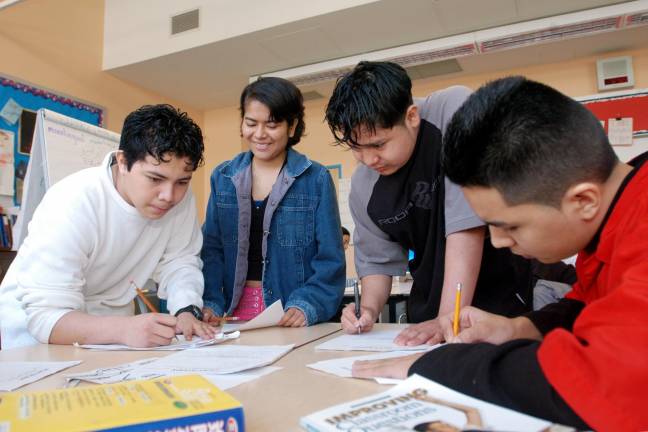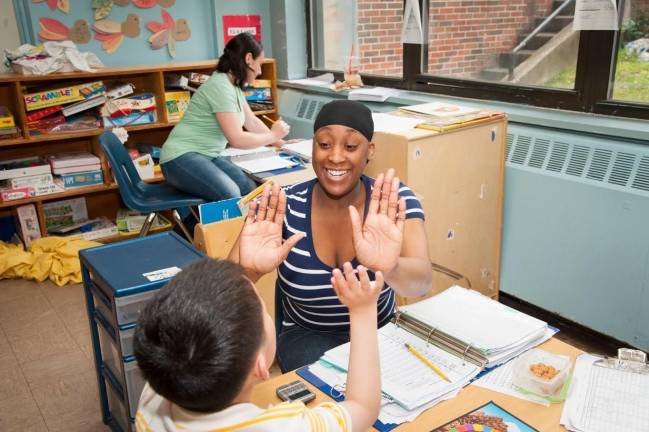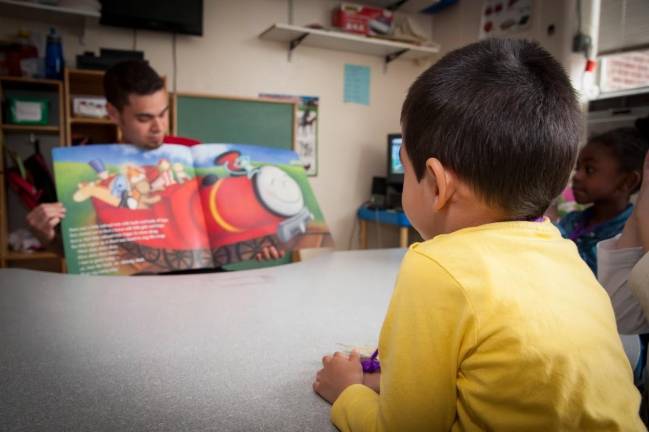8 Ways to Make a Difference for NYC Students
The program officer for education at The New York Community Trust offers suggestions to help kids during this school year
The start of a new school year is an exciting time for New York children—a time when they get to meet new teachers and make new friends.
But for many students, this hopeful excitement is replaced by anxiety.
This is especially true for children who grow up in foster care, are living with disabilities, or for whom English isn’t the primary language spoken at home. Unfortunately, many New York City schools are not prepared to meet these students’ needs. The good news is you can help by supporting a number of New York nonprofits that are working every day to make it possible for more children to succeed.
From providing on-the-ground help in schools to advocating for improved policies, nonprofits are making our school system work for all students. Below are eight ways to give and some great organizations that can put your generosity to work.
1. Help students with autism and other disabilities
All children have the right to attend school and to learn, including children with disabilities. But teachers, families, and administrators often need tools and training to help ensure they can meet the unique needs of these students. You can help by supporting:
Advocates for Children of New York helps children with disabilities and others who are at greatest risk of school-based discrimination.
INCLUDEnyc offers training and information for teachers and other professionals who work with students with disabilities.
Parents for Inclusive Education brings together parents, advocates, and professionals to improve opportunities for students with disabilities.
QSAC offers programs to help students with Autism.
2. Create safe, supportive schools
It’s difficult to learn when you don’t feel safe.
That’s why a number of nonprofits are working to help students feel more secure. You can help by supporting:
Cure Violence New York trains trusted insiders to intervene in conflicts before violent incidents happen.
Make the Road New York works to reduce arrests and suspensions and ultimately help more students graduate.
New Yorkers Against Gun Violence Education Fund teaches students how to talk about violence and become advocates for safer communities.
3. Create curricula that connects
Students learn best when they see themselves in the materials they study.
Culturally responsive education has become a touchstone issue — and several nonprofits are at the forefront of efforts to rethink curricula. You can help by supporting:
NYC Coalition for Educational Justice and allies such as Make the Road New York, and New Settlement Apartments are leading efforts to make sure that students study themes and materials from a wide range of cultural perspectives.
4. Support early reading. Early-reading skills have a strong relationship with a child’s long-term success.
Ready Readers, an after-school program, teaches critical reading skills to students in kindergarten through grade three.
Several New York nonprofits are playing host to Ready Readers programs across the city.
They include: CAMBA, Chinese-American Planning Council, Cypress Hill Local Development Corporation, ExpandED Schools, and Teaching Matters.
5. Prepare students for professional careers
A number of nonprofits help students from low-income communities connect with opportunities that put them on a path to professional careers. You can help by supporting:
Exalt Youth offers an internship program for court-involved teens. Two-thirds of the program’s participants have completed their internships and all of them have remained in high school.
Futures and Options provides internships for high school students living in public housing and youth shelters.
Knowledge House provides free training in coding for low-income young people in 10 Bronx high schools.
Stanley M. Isaacs Neighborhood Center runs programs that help young people in public housing get high school equivalency certificates.
6. Help students in foster care
Those who are in foster care face a number of challenges that can stifle their success. But with the right investments and support, these children have a path toward a brighter future. You can help by supporting:
Court Appointed Special Advocates for Foster Care helps young adults as they leave foster care.
Foster Care Excellence Fund at The New York Community Trust supports promising approaches to find excellent foster homes for kids in New York.
Graham Windham operates youth development and family support programs in Harlem, Brooklyn, the Bronx and Westchester.
JCCA provides foster care and support services to New York’s neediest and most vulnerable children.
7. Support young immigrants
Immigrant children are among the most vulnerable students in New York’s schools.
As immigration receives increased scrutiny and debate, nonprofits are working to help ensure immigrant children get support and care. You can help by supporting:
Flanbwayan Haitian Literacy Foundation helps Haitian newcomer youth in New York schools and trains teachers to become more culturally aware.
Internationals Network for Public Schools educates more than 5,000 New York students from 131 countries who speak 102 languages.
8. Expand arts education
Children who have access to quality arts programs perform better in other subjects, have fewer behavioral issues, and are more likely to succeed.
Unfortunately, schools increasingly lack funding to provide these programs — and teachers often have to double down on subjects like math and English to prepare students for standardized tests.
ArtistYear places teaching artists in low-income schools in NYC.
ArtsConnection works with elementary, middle and high schools across all five boroughs to integrate the dance, theater, visual arts, and music into students’ overall learning and development.
HookArts Media provides in-school, multidisciplinary arts and media programs in New York City transfer high schools.
These are just some of the nonprofits The New York Community Trust funds to improve education. Contact our donor services team if you’d like to learn more about supporting New York students.


